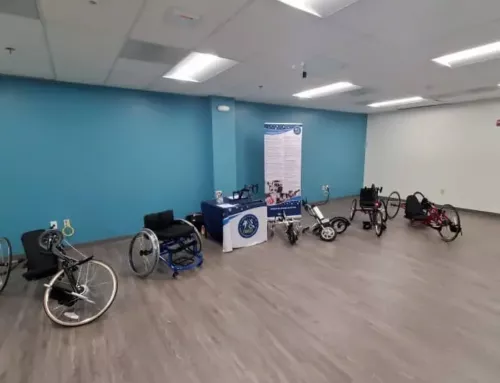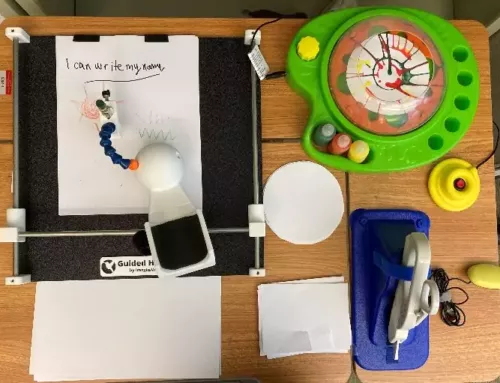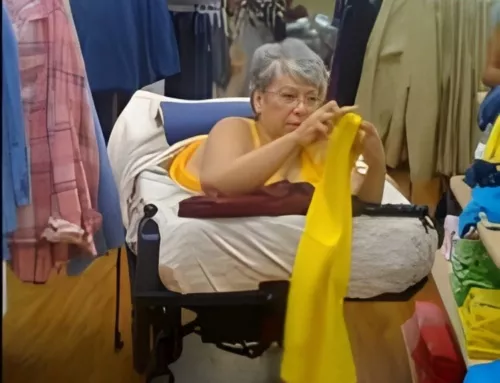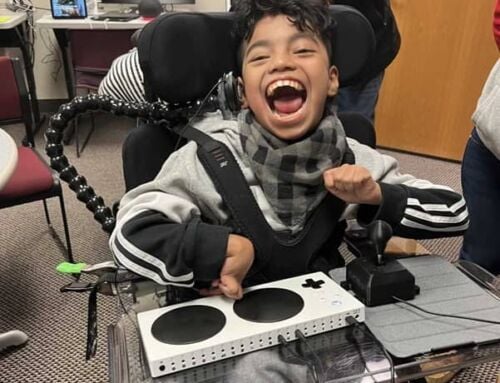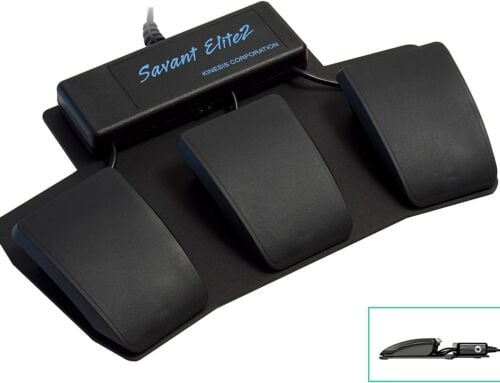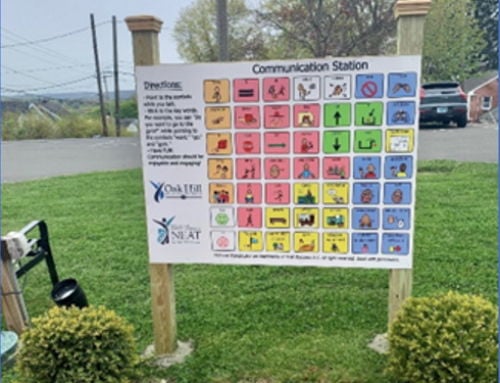A.T. Programs Support Telehealth

Here’s another way the State and Territory A.T. Programs are playing an increasingly vital role in this public health crisis.

The COVID-19 pandemic has taken a heavy toll on vulnerable populations, including older Americans, those with underlying health conditions, persons with disabilities of all ages, and especially those receiving long-term care services and supports.
During this unprecedented time, many primary care providers and specialists have transitioned to remote services. In response, A.T. Programs are providing expertise to ensure a continuum of healthcare to seniors and persons with disabilities through the use of accessible telehealth technology.
Program Spotlights on Telehealth:
Montana:
In September of 2020, MonTECH began a partnership with the Montana Family to Family Health Information Center to purchase $15,000 in telehealth equipment (funded by a CARES Act Telehealth Award). Montana covers a vast, dramatic geographic area, and connectivity is a challenge. Committed to helping families participate in remote therapies and medical appointments, MonTECH added telehealth equipment to its loan inventory, including mobile hotspots, document cameras, smartphone gimbals, and biometric devices like pulse oximeters, EKG sensors, and talking glucose and blood pressure monitors.
MonTECH recently received feedback on these expanded telehealth options. Montana Pediatrics, a physician collaborative, serves children via telehealth on the Fort Peck reservation, home to Assiniboine, Nakota, Lakota, and Dakota peoples, including approximately 2,500 children age 0-21. They trialed a mobile hotspot, and Director of Programs and Physician Collaboration Alice Laverdiere reported, “I was able to use the Jetpack to connect in multiple, very rural and poor connectivity areas throughout Fort Peck on the iPad. This was significant in that it will support home visits, visits in the community, and a back-up when on-site connectivity at the clinic is down.”
Indiana:
INDATA prioritized services to individuals who needed to access either telehealth or remote schooling during the COVID-19 pandemic. The program limited services to provide computers and tablets in both its device loan and reuse programs to only those individuals needing access to these activities. By July 2020, INDATA resumed all services but continued to prioritize equipment for people needing remote access. “As an agency, we went from 4 telehealth consumers to serving over 600 in just a few weeks,” reports Brian Norton, Director of Assistive Technology. “But we also deployed laptops to our therapists so they could continue to provide disability services such as speech therapy and provided staff training to anyone who needed that support.” INDATA has since expanded its approach to training for telehealth. In May, the program is offering a free public webinar, “Accessible Telehealth,” covering remote video conferencing options, accessibility features, and strategies. “We’ve learned so much, and we are sharing what we know statewide,” Norton says.
Rhode Island:
Since early in the pandemic, RI ATAP has provided technical assistance to entities that serve seniors and individuals with disabilities to ensure access to telehealth and to combat social isolation. Since March of 2020, the program has worked with the Office of Healthy Aging and the RI Department of Behavioral Healthcare, Developmental Disabilities, and Hospitals to serve as a bridge to available technology. This includes acquiring internet hotspots from the Office of Innovation, accessible communication technology from the Adaptive Telephone Equipment Loan Program (which RI ATAP manages), and computers and computer access technologies, tablets, and more from their short-term equipment loan program and device reuse and exchange programs.
RI ATAP has also provided train-the-trainer assistance to recipients of CARES Act funding, such as Cyber-Seniors. Cyber-Seniors matches young adult volunteers to help seniors learn to use technology. “Cyber-Seniors has funds to connect 200 tablets to seniors across Rhode Island,” reports RI ATAP Program Director Melanie Sbardella. “We worked with the organization on strategies for teaching technology to older adults so they can then train their college and high school student volunteers. The need for essential services like telehealth is driving forward these new relationships.”
Monthly Blog Digest
Search the blog
State AT Program Blogs
California
Florida
Indiana
Kentucky
Louisiana
Maryland
Massachusetts
Michigan
Montana
North Carolina
North Dakota
Utah
State AT Program Blogs
The AT3 Center, the Association of AT Act Programs (ATAP), and the Administration on Community Living (ACL) make no endorsement, representation, or warranty expressed or implied for any product, device, or information set forth in this blog. The AT3 Center, ATAP, and ACL have not examined, reviewed, or tested any product or device hereto referred.



